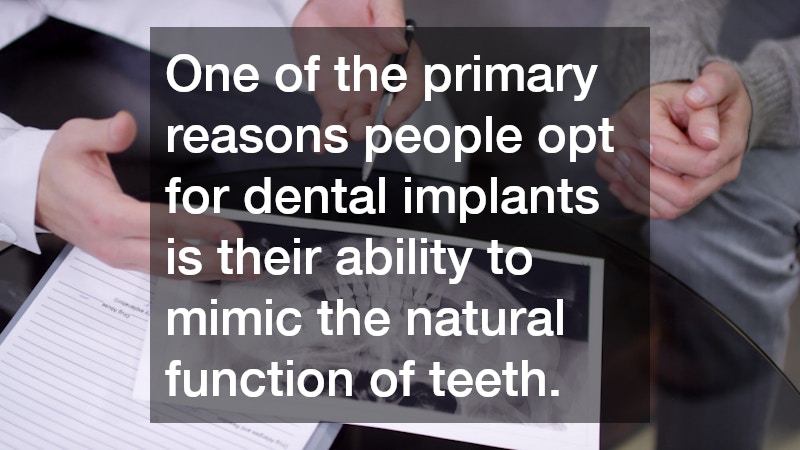
How Dental Implants Restore Both Function and Confidence
How Dental Implants Restore Both Function and Confidence
Dental implants have revolutionized dentistry, offering a reliable solution for those missing one or more teeth. Unlike dentures or bridges, dental implants are designed to mimic the natural structure of your teeth, providing unparalleled stability and functionality. For many, this advancement in dental care not only improves bite and speech but also significantly boosts self-esteem.
By addressing both aesthetic and practical concerns, dental implants enhance quality of life in a holistic manner. In this post, we’ll delve into the numerous ways dental implants restore both function and confidence to those who choose them.
Functional Benefits of Dental Implants
One of the primary reasons people opt for dental implants is their ability to mimic the natural function of teeth. Unlike traditional dentures, implants are anchored directly into the jawbone, providing a stable foundation for artificial teeth. This means that individuals with implants can eat, speak, and laugh with ease, without worrying about slippage or discomfort. Notably, studies have shown that dental implants can last a lifetime when properly cared for, offering a durable solution unmatched by other restorative options. Moreover, by preserving jawbone integrity and preventing bone loss, implants maintain facial structure and functionality.
Aesthetic Improvements and Social Confidence
The aesthetic enhancements offered by dental implants also play a significant role in boosting confidence. For many, missing teeth can lead to feelings of self-consciousness, prompting them to smile less and avoid social interactions. Dental implants offer a natural-looking solution, closely resembling one’s own teeth and seamlessly blending with existing tooth coloration. This natural appearance can significantly elevate a person’s confidence, encouraging them to smile more freely and engage more openly in social settings. Additionally, the ability to chew properly and enjoy a wider variety of foods further enhances the quality of life, contributing to overall wellbeing.
Improved Oral Health
Another advantage of dental implants is their contribution to improved oral health. Unlike traditional bridges, which may require reshaping of adjacent teeth, implants do not alter neighboring teeth. This preserves the integrity of surrounding dental structures and maintains overall oral health. Furthermore, implants are designed to be easy to clean, reducing the risk of cavities and gum disease common with other tooth replacement options. By eliminating gaps where food can become trapped, implants help maintain a cleaner and healthier mouth environment, which is crucial for long-term dental health.
Maintenance and Longevity
Dental implants are celebrated not just for their functionality and aesthetic appeal but also for their durability and low-maintenance nature. Once the implant has been properly set and integrated into the jaw, maintaining it becomes straightforward. Regular dental check-ups and maintaining good oral hygiene practices like brushing and flossing are usually sufficient to keep implants in excellent condition. In fact, with proper care, the lifespan of dental implants often extends well beyond that of alternative treatments like bridges or dentures. The resilience and enduring nature of implants make them a preferred choice for restoring both function and confidence in the long term.
Economic Considerations
While the initial cost of dental implants may seem high, the long-term economic implications often justify the investment. Unlike dentures that may require adjustments and replacements over time, implants usually entail a one-time cost followed by routine check-ups. Additionally, the functional benefits of eating a more varied diet and avoiding potential oral health issues can translate into savings on health and dental expenses. Given their durability and the absence of secondary modifications to other teeth, implants also offer an economically sound solution for those looking to restore both function and confidence. As such, individuals often find that the upfront cost pays off in terms of both quality of life and financial stability.
Conclusion
In summation, dental implants provide a comprehensive solution for restoring both the function and confidence of individuals suffering from tooth loss. They offer lasting functional benefits, improving both bite efficiency and oral health while simultaneously enhancing one’s aesthetic appearance. Furthermore, the socio-emotional boost that accompanies a restored, natural-looking smile can significantly enhance one’s quality of life. As an investment in one’s long-term health and wellbeing, dental implants stand out as a superior choice among tooth replacement options. Whether you are looking to improve chewing function, protect oral health, or restore your smile’s confidence, dental implants offer an excellent pathway towards a healthier, more confident future.



